I am Afifa Noor and I hope you all are fine and doing well. Today I have come up with brief detail about a common but can be very dangerous disease if you don't care about it in early stages
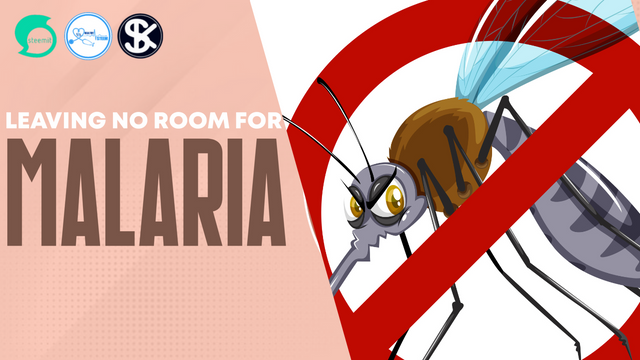
Malaria is a disease caused by a germ that shifts to human body through the bites of mosquitoes. Approximately 290 million people are infected with malaria in a year. When an infected mosquito bites, it injects the parasite into the person's bloodstream, where it gradually multiplies and enters the liver. From there, it enters the red blood cells (RBCs), causing infection and leading to various symptoms. The Anopheles mosquito, specifically the female species, is responsible for transmitting malaria. Understanding the cycle of malaria transmission is crucial in preventing and controlling this deadly disease.
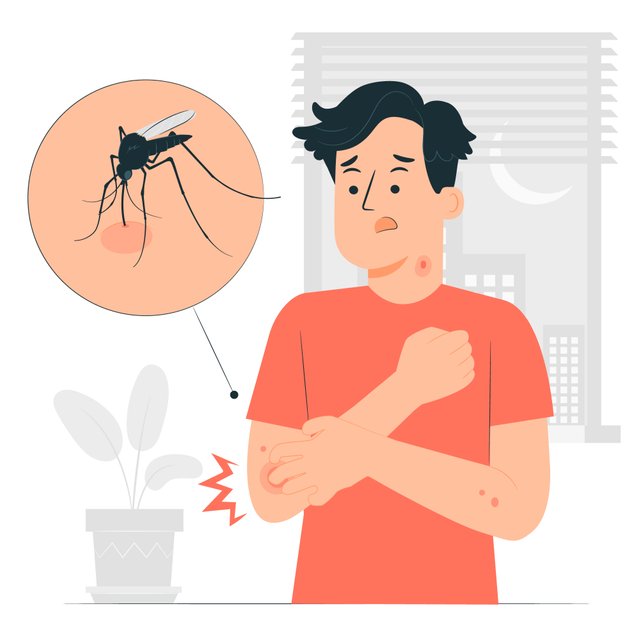
How do people get Malaria, mention 5 things we can do to stop it?
There are many reasons why malaria is a significant concern, and I've mentioned some of them earlier. Malaria is a disease that we often don't realize we have until it's too late. However, it can be prevented and treated. Let's talk about how it spreads. It spreads more in the summer season and during rainy days when water accumulates, and mosquitoes breed. Where there is standing water and filth, mosquitoes thrive. We must keep our surroundings clean, our homes free from filth, and work together with our communities to keep our area clean. It's not just about preventing mosquito bites; if a pregnant mother has malaria, the symptoms can pass to the child through the mother's blood. Many such things can happen. Protection from all this is very important. A small mosquito can be so dangerous that it can take someone's life. So, let's take care of ourselves. I'll add a few more:
- Weak immune system
- Poor sanitation and hygiene
- Lack of awareness and education
- Inadequate healthcare facilities
- Drug resistance
- Climate change
Give some signs of Malaria, and why is it important to find it early?
Signs of Malaria:
- Fever with chills
- High-grade fever (over 103°F)
- Feeling cold
- Headache
- Body ache
- Joint pain
- Nausea and vomiting
- Loss of appetite
- Bitter taste in the mouth
- Dizziness
- Stomach pain
- Loose motions
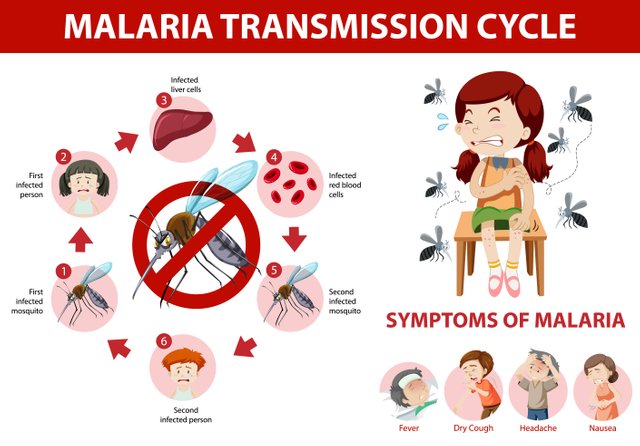
If you experience any of these symptoms, it's essential to consult a doctor immediately. After conducting some tests, the doctor will be able to determine if you have malaria or not.
Personally, I have gone through these symptoms, and I understand the severity of this disease. However, I am now recovered, and I am grateful to God. If you are experiencing any of these symptoms, don't hesitate to seek medical attention promptly. If someone finds out they have malaria, it's essential to treat it promptly, as this disease can be life-threatening and significantly weaken the immune system.
Why early detection matters:
Treating malaria is crucial so that we can stay safe from this disease and its complications
The sooner the treatment begins, the better. If it's delayed, the disease can worsen, and the chances of recovery decrease. If left untreated, malaria can lead to severe complications, including organ failure, anemia, seizures, coma, and even death. Early diagnosis and treatment are crucial to prevent long-term damage and reduce the risk of complications. Let's raise awareness and promote timely treatment to defeat malaria!
How does Malaria affect communities, and what can we do to fight it?
Malaria's impact on communities:
- Economic burden
- Healthcare system overload
- Social stigma
- Education disruption
- Poverty cycle
Fighting Malaria together:
- Education and awareness
- Community efforts
- Vector control
- Research and development
Why are mosquitoes linked to Malaria, and how can we control them to stop the disease?
Mosquitoes and Malaria:
- Mosquitoes transmit the parasite
- Control measures: elimination of breeding sites, insecticides, and repellents
ways to stop Malaria:
- Use insecticide-treated bed nets.
- Wear protective clothing and apply insect repellents.
- Eliminate standing water around homes and societies.
- Use mosquito nets and indoor residual spraying.
- Take antimalarial drugs as prescribed by your doctor.
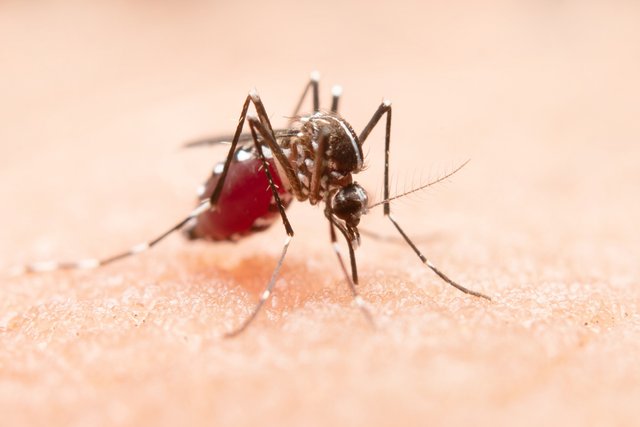
To help manage a fever at home, try the following:
- Drink a glass of water every 2 hours to stay hydrated and help reduce your temperature.
- Keep your environment cool by opening a window or adjusting the thermostat.
- Take a 10-minute warm shower to help regulate your body temperature and promote sweating, which can help reduce your fever.
- If your fever persists, consider taking over-the-counter fever-reducing medication like Artemisinin, Acetaminophen (Tylenol), or Ibuprofen (Advil, Motrin).
- Get plenty of rest and aim for a good night's sleep to help your body recover faster.
I had malaria once, and I took medication, but I also tried some home remedies that really helped me recover fast. They're super easy to make!"Here are some home remedies that may help alleviate malaria symptoms:👇
Ginger: Ginger has natural anti-inflammatory properties that may help reduce fever and pain. Ginger: boil in water and drink as tea
- Neem leaves: boil in water and drink as tea
- Turmeric: Turmeric contains curcumin, which has anti-inflammatory and antioxidant properties that may help reduce symptoms.
- Cinnamon: Cinnamon has natural antibacterial and anti-inflammatory properties that may help reduce fever and pain.Cinnamon: mix with water and drink
- Lemon and Honey: A mixture of lemon juice and honey may help soothe a sore throat and reduce fever.
- Garlic: Garlic has natural antibacterial and antiviral properties that may help boost the immune system and reduce symptoms.
- Herbal Teas: Herbal teas like chamomile, peppermint, and ginger may help reduce fever and promote relaxation.
- Turmeric: mix with milk or water and drink
Tulsi leaves (Holy Basil): boil in water and drink as tea
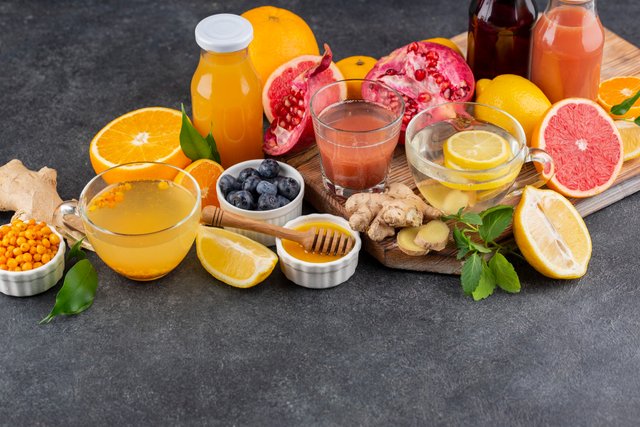
Immunity-Boosting Tea Recipe
Ingredients:
- Fresh Ginger (1-inch piece)
- Basil leaves (5-6)
- Turmeric powder (half teaspoon)
- Cinnamon stick (1-inch piece)
- Honey (1 tablespoon)
Instructions:
- In a pot, combine:
- Fresh Ginger (1-inch piece)
- Basil leaves (5-6)
*Turmeric powder (half teaspoon) - Cinnamon stick (1-inch piece)
- Add water and bring to a boil.
- Reduce heat and simmer for 5-7 minutes.
- Strain the tea and discard the solids.
- Add 1 tablespoon of honey to the tea and stir well.
- Drink the tea twice a day, morning and evening, before bed.
Enjoy your soothing and immunity-boosting tea!
Here are some juices that may help prevent malaria or alleviate its symptoms:
- Pomegranate juice: rich in antioxidants and vitamins
- Orange juice: high in vitamin C, which boosts immunity
- Grapefruit juice: contains compounds that may help fight parasites
- Cranberry juice: may help prevent malaria parasites from adhering to red blood cells
- Amla juice (Indian gooseberry): rich in vitamin C and antioxidants
- Pineapple juice: contains anti-inflammatory compounds
- Apple juice: contains quercetin, which may help fight parasites
- Papaya juice: rich in vitamins and antioxidants
How has treating and preventing Malaria changed, and what problems are we still facing in getting rid of it?
Treating and preventing malaria has changed in some ways, but there are still challenges to overcome. Here's a simplified explanation:
Changes:
- Advances in treatment and prevention
- Governments have become less involved in treating malaria, making it seem like a minor issue.
- People often treat malaria with basic pain relievers like paracetamol, rather than seeking proper medical care.
Challenges:
Malaria can still damage the brain and central nervous system if left untreated or mistreated.
lack of community resources and low amount funding to build hospitals and providing proper care.
we need to spread more awareness and education about malaria prevention and proper treatment.
Drug resistance, and access to healthcare
it becomes more hard to control as Mosquitoes continue to breed and spread the disease.
while some progress has been made, malaria remains a serious disease that requires more attention, resources, and proper treatment to overcome
Regards
@creative.streams
Nyamuk malaria adalah makhluk yang kecil, namun dia bisa membunuh seorang manusia. Dia juga hidup dilingkungan yang kotor dan genangan air menjadi istana baginya, penting untuk kita selalu menjaga kebersihan..
Presentasi yang bagus kawan, saya berharap anda berhasil dalam kontes ini,
Downvoting a post can decrease pending rewards and make it less visible. Common reasons:
Submit
Thank you for your insightful comment! Yes, mosquitoes may be small, but they can indeed have a significant impact on human health. It's crucial to maintain cleanliness and eliminate breeding sites, such as standing water, to prevent the spread of malaria and other diseases. Your support and encouragement are appreciated, and I wish the contestants success in raising awareness about malaria prevention!✨
Downvoting a post can decrease pending rewards and make it less visible. Common reasons:
Submit
You are welcome my friend... 👍
Downvoting a post can decrease pending rewards and make it less visible. Common reasons:
Submit
I read your post you can tell about malaria . In which you tell about the causes and impact of malaria as well as how we can save against this disease . Your post is interesting and very informative...
Best of luck for contest 💞
Downvoting a post can decrease pending rewards and make it less visible. Common reasons:
Submit
Thank you dear for the best wishes ✨
Downvoting a post can decrease pending rewards and make it less visible. Common reasons:
Submit
Upvoted. Thank You for sending some of your rewards to @null. It will make Steem stronger.
Downvoting a post can decrease pending rewards and make it less visible. Common reasons:
Submit